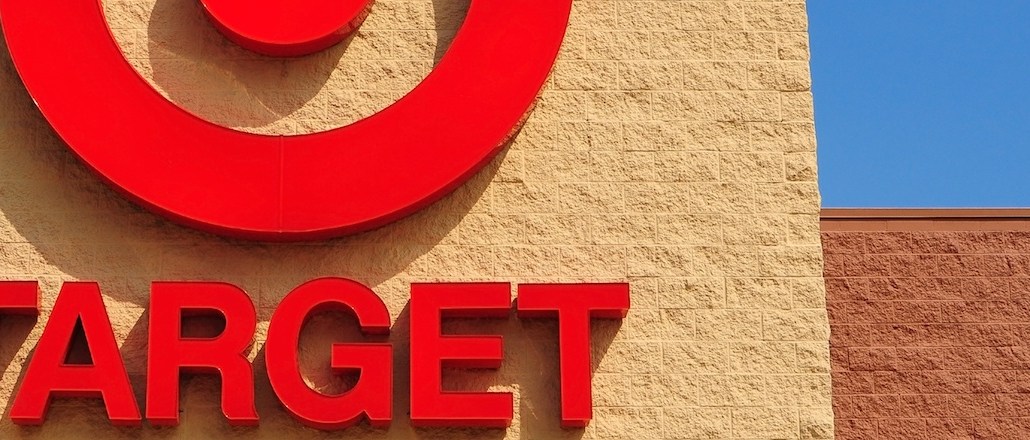Target hits ‘a home run’ by ditching gender-based labeling in its stores

Target announced Friday that it will be dropping gender-based labeling in its stores on products like toys and decor. Ditching the “boys” and “girls” labels was the direct result of listening to its customers, the big box chain said in an announcement — and those very customers showered the brand with praise over the ensuing weekend.
“Over the past year, guests have raised important questions about a handful of signs in our stores that offer product suggestions based on gender,” Target said in a statement posted online on Friday. “But we know that shopping preferences and needs change and, as guests have pointed out, in some departments like Toys, Home or Entertainment, suggesting products by gender is unnecessary.”
The move was in response to a consumer tweet in June, in which the retailer came under fire for separating toy building sets by gender. Ohio mother Abi Bechtel’s “Don’t do this, @Target” tweet on the subject was retweeted nearly 3,000 times — and inspired the retailer to rethink its merchandizing.
Don’t do this, @Target pic.twitter.com/cfh3cp5Nqa
— Abi Bechtel (@abianne) June 1, 2015
“Target’s decision has been a long time in the making, and as a brand strategist and a mom, I’m glad to see the change,” said Leesa Wytock, director of digital activation for branding firm Siegel+Gale. “After all, 20-to-30 years ago, there were no such things as ‘Legos for girls’ or ‘Legos for boys’ — there was just one product for everyone.”
Regular people on Facebook and Twitter took note, too. Target has accumulated nearly 20,000 mentions on the Internet since August 4, with nearly 90 percent of those social media mentions happening since Friday, according to social analytics firm Brandwatch. The conversation is also overwhelmingly pro-Target, with twice as many positive social mentions as negative.

On Facebook Target averaged at 151 fan posts on its Facebook wall per day over the past month, according to social media analytics company Socialbakers. This number, however, jumped drastically after the announcement, with Target receiving 473 posts on August 7, followed by 635 and 701 posts on August 8 and August 9.

Issues like gender norms and stereotypes can be polarizing. But as Brandwatch data further revealed, men weren’t too far behind women in commending Target for its decision. The gender breakdown of the social conversation around Target showed that 59 percent of the those commenting on the issue on Twitter were women, but 41 percent of them were men that contributed to the conversation.
“It’s a home run, it is bringing them a lot of credit and industry buzz” said Jason Goldberg, gvp of commerce strategy at Razorfish. “It is a good example of a brand listening to people and actually making a change to extend their appeal to the next generation of their target audience, or new moms with different sensibilities.”
For some experts, it is just good business sense.
“The decision is less about being politically correct or making an ‘on-brand’ decision that garners social media mentions or good reputation,” said Erich Joachamsthaler, founder of branding firm Vivaldi Partners. “It is about responding to consumers’ shopping preferences, and ensuring profitability of the stores. Shopping is an experience that should work for both the shopper and the retailer.”
Target isn’t the first major retailer to have made strides in this direction. Amazon removed gender-based categories for children’s toys in May. Experts expect manufacturers to follow suit before long, too. Indeed, many already have: Hasbro released a gender-neutral Easy Bake Oven in 2012.
“Manufacturers are ultimately responsible for how the toys are made,” said Wytock. “It is difficult to claim that toys will now be gender-free without ensuring that the toys themselves aren’t still made to appeal to boys and girls separately. Hasbro’s Easy Bake Oven decision is a good example of that change done right.”
More in Marketing

YouTube’s upmarket TV push still runs on mid-funnel DNA
YouTube is balancing wanting to be premium TV, the short-form powerhouse and a creator economy engine all at once.

Digiday ranks the best and worst Super Bowl 2026 ads
Now that the dust has settled, it’s time to reflect on the best and worst commercials from Super Bowl 2026.

In the age of AI content, The Super Bowl felt old-fashioned
The Super Bowl is one of the last places where brands are reminded that cultural likeness is easy but shared experience is earned.





